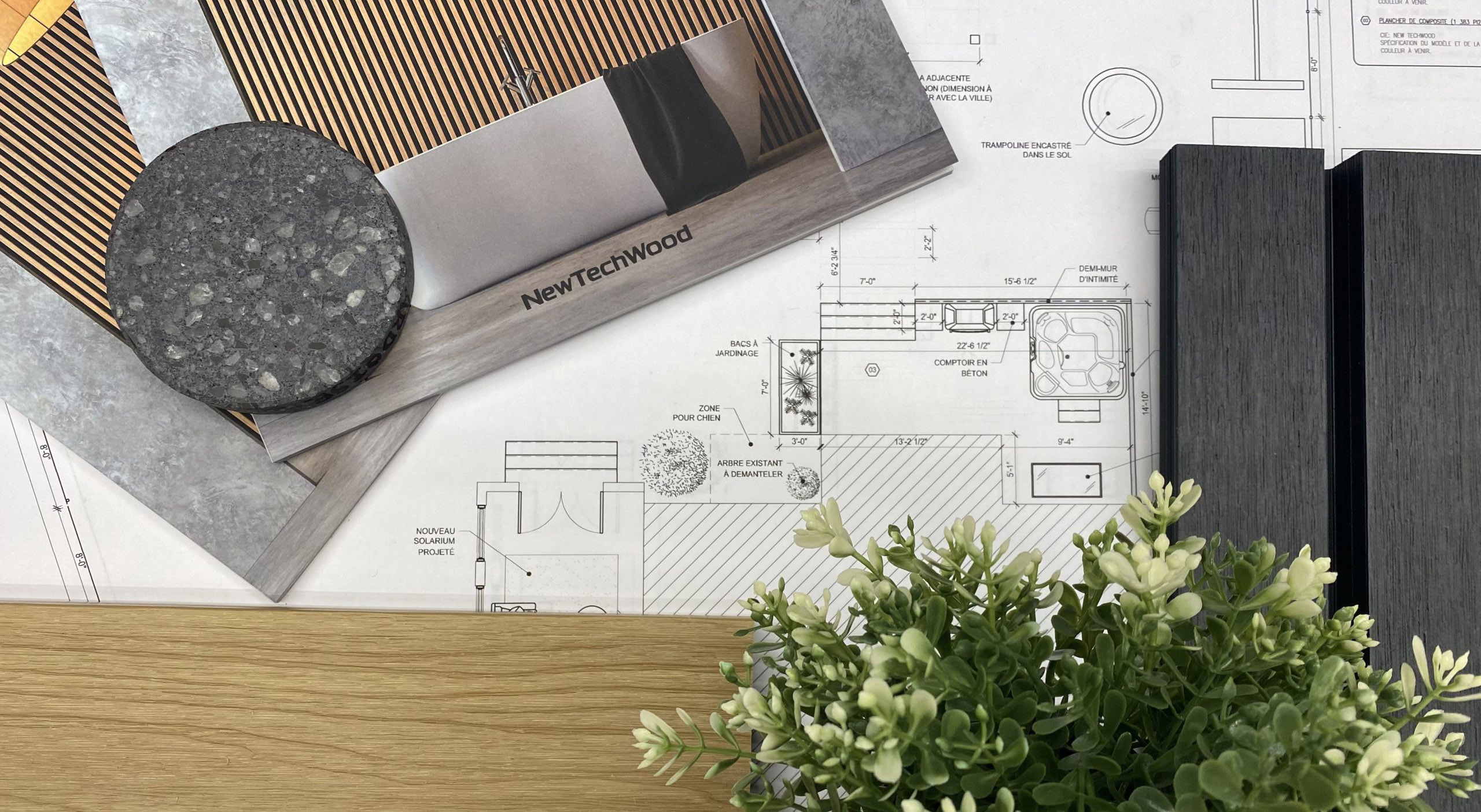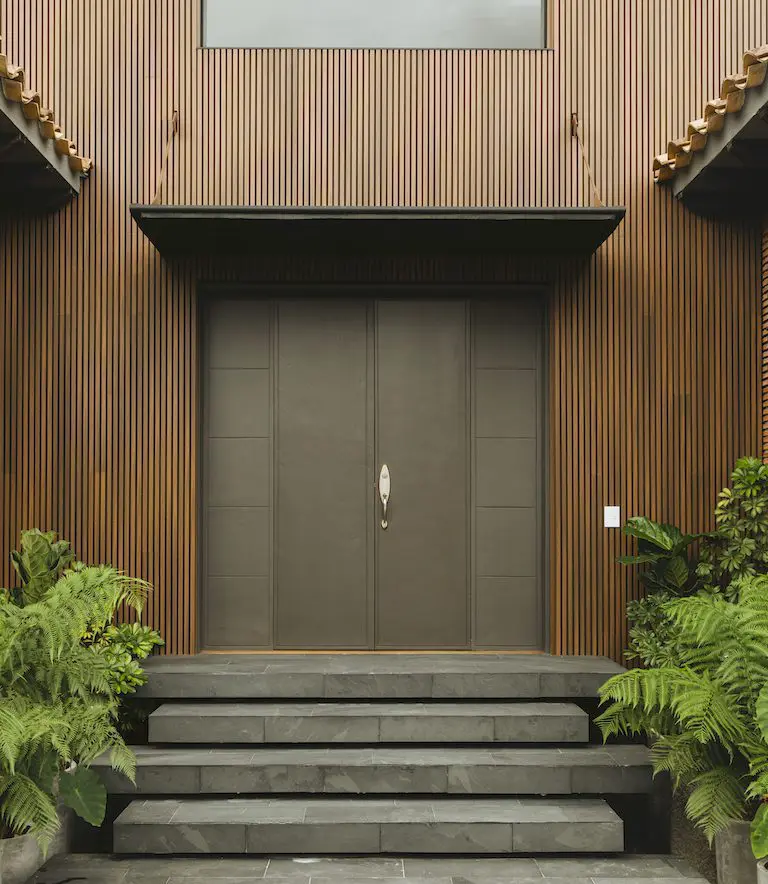Adding a deck to a home is a significant and highly appreciated improvement by the family. Whether you are designing a deck in a small space or in a large area that can accommodate the whole family, you should ask yourself these questions before starting your project:
1. What will be the main use of your deck?
Will it be a cozy urban patio or a poolside deck, like a pool house? Will it serve as a space to host friends, neighbors, and family for parties and gatherings, or will you use it as a relaxation spot to read a good book and sip a glass of wine?
A deck can be peaceful and quiet, discreet and intimate, or on the contrary, lively and become the center of your family life. Think about how your deck will be used and by whom: a romantic candlelit dinner, or a BBQ with kids and friends? It’s important to plan the right space for optimal use.
2. Where will the deck be located?
Do you want a fully sunny space, or do you prefer some shade? Where does the sun rise and set, and where will the deck get the most or least sun based on your preferences?
A deck built close to the house is easier to wire for electricity, lighting, security systems, and electric grills.
A door providing direct access to the deck makes it easier to move back and forth when preparing meals from the kitchen to the outdoors.
A deck that offers both sun and shade will be used more according to your personal preferences.
3. What is the total cost of owning your deck?
From the outset, consider the cost of materials and construction for a traditional wooden deck.
After construction, a wooden deck requires a coat of stain and a coat of sealant every two years. Wood is also prone to rot, mold, and splitting, which can be a hassle and costly to repair.
Calculate the total ownership cost for the lifespan of any wooden deck you plan to install, including maintenance costs year after year.
You’ll find it’s more appealing to use high-quality composite boards made from high-density recycled plastics and wood fibers that would otherwise end up in our overloaded landfills. A win for the environment.
Composite wood decks are durable, attractive, require low maintenance, and are easy to install. Whether it’s an intimate balcony in an urban setting or a large deck surrounding your pool, add the total ownership cost of your deck to get the best return on investment for your home.
4. Who will install your deck?
Materials have their cost, but transforming these materials into an attractive platform that meets your expectations is a crucial step. This requires the expertise of highly qualified installers who can read your sketches and encapsulate your vision. This type of expertise can be very expensive, so if construction costs are considerable, you may need to consider building your dream deck yourself.
Look for composite boards that use secure and easy-to-use clip systems to keep your deck boards in place. The boards can also be cut to the desired length, and with seamless ends, you’ll achieve a professional finish at a much lower cost.
5. Boards or tiles? It’s your choice.
If you want to design a space with style and elegance, and durability and resistance are among your priorities, consider outdoor tiling made from durable, low-maintenance composite wood tiles in a variety of shades and finishes. These tiles are perfect for small spaces like balconies or patios.
If your dream deck extends into the backyard, boards made from high-density recycled plastic and wood fibers may be simpler for you to install yourself, as you will use fewer boards simplifying the building process.
You’ll have options in terms of colors, textures, and aesthetic finishes, so let your imagination run wild!
6. What about railings, stairs, and other accents for the deck?
You must plan your deck in meticulous detail.
What type of railing will you need? Is the deck elevated? Will your deck have an outdoor staircase? Will these stairs withstand the elements and the wear and tear from a family that fully enjoys the outdoor yard during the summer?
Take a moment to envision the completed deck, with its railings in place for maximum safety, its stair steps able to withstand heavy use, using weather-resistant materials to minimize maintenance costs and time – have a clear image of your perfect deck before construction begins.
Plan ahead, create your “deck construction” budget, explore your options, and know your “must-haves” before starting; this will help you achieve the deck you will enjoy for years to come.
7. Is it worthwhile to shop around?
The costs of a deck vary considerably. So does the quality.
If you’re considering building a deck using composite materials, shop around and don’t just look at the cost per square foot. Sure, you can save a few dollars by using lower-quality wood or composite, but will you still love it in five years?
Quality, durability, easy installation, low maintenance, and eco-friendliness make high-quality composite wood decks the straightforward and cost-effective solution to all your deck-related decisions.


